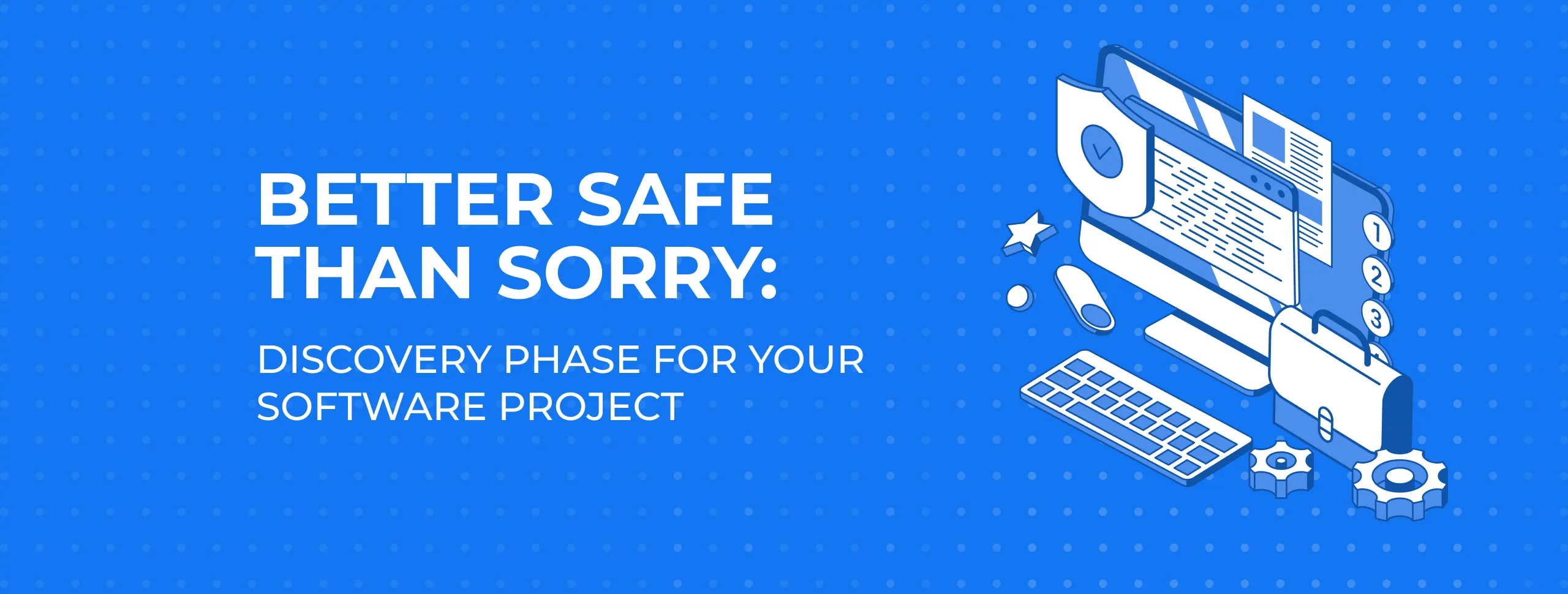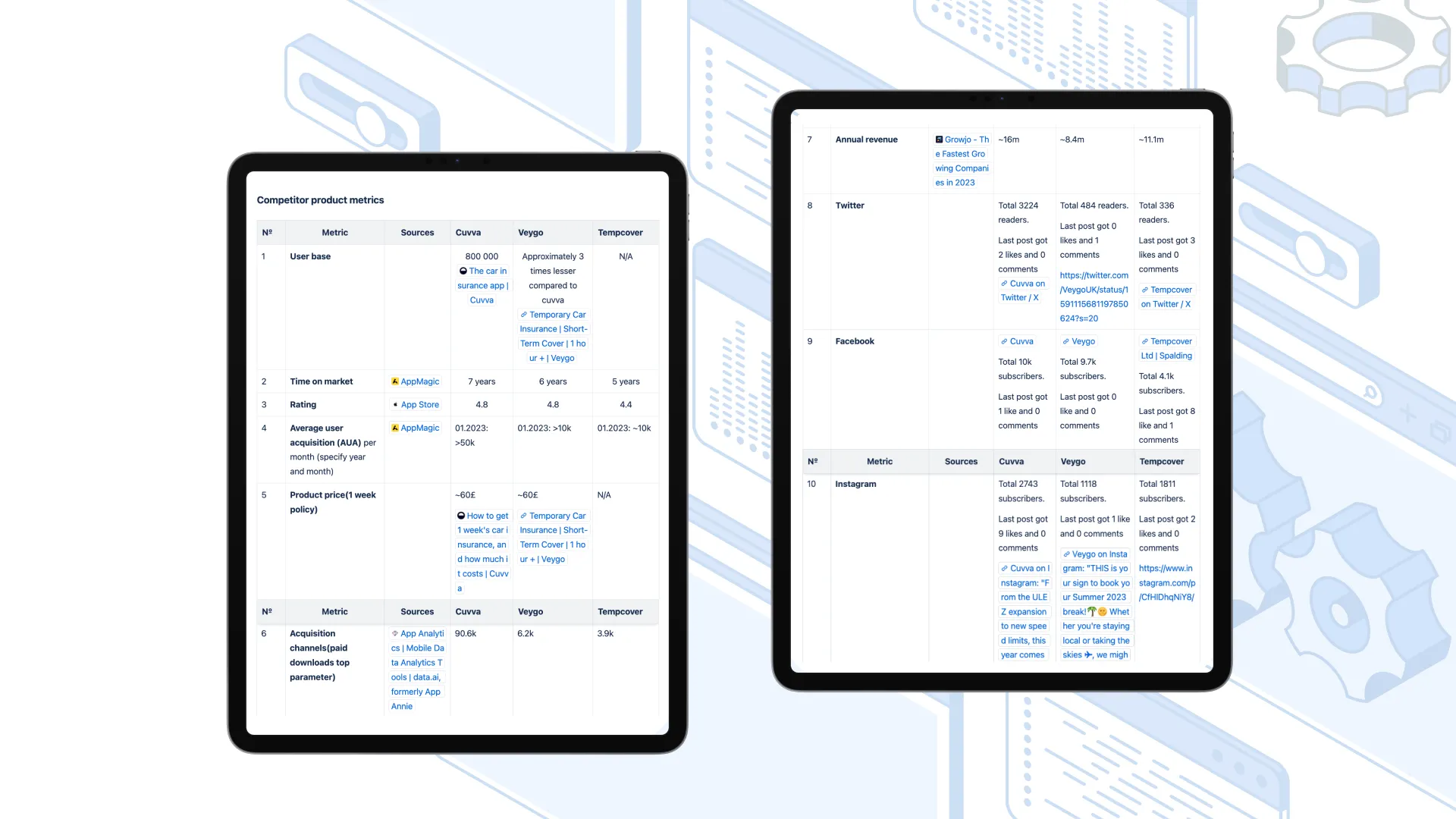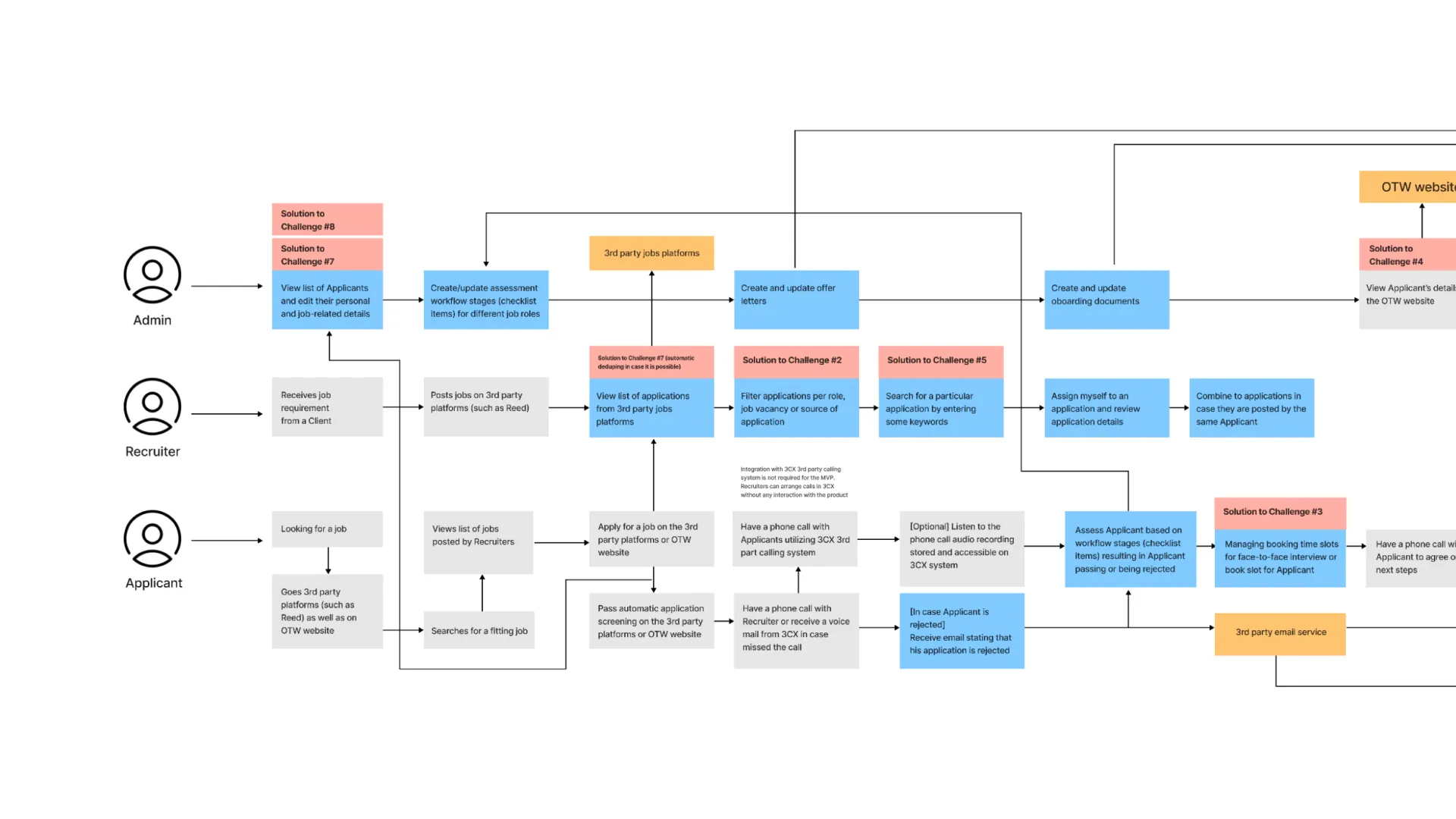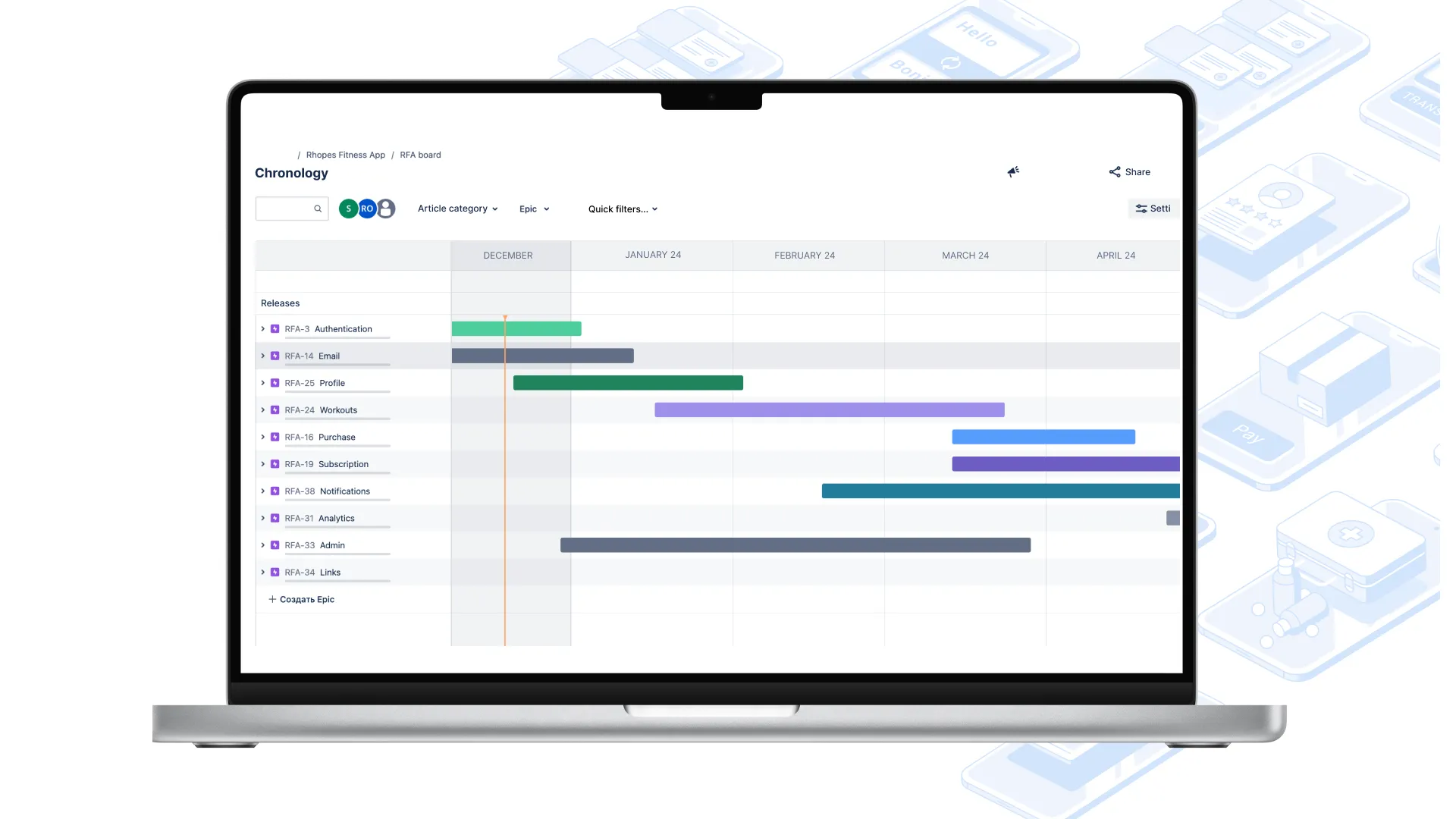
Discovery Phase for your Software Project

You can rely on your fate and luck when implementing new ideas, or draft a blueprint with a proficient team and lock up the silverware. The Magora team believes that a well-thought-out plan is a point of departure for a fruitful software development process.
What is a Discovery Phase?
The Discovery Phase marks the inception of a project, characterized by comprehensive analysis and the formulation of effective strategies to grasp a profound understanding of the future software product. Our approach is more than just analysis; it's a holistic consultation process that navigates to the core of your vision. We delve deep into understanding your business objectives, map user interactions, and refine your concept into a visionary prototype.
The Product Discovery is comprised of the following steps:
.webp)
Competitor Analysis: Competitor analysis involves studying and evaluating the strengths, weaknesses, strategies, and offerings of competitors products within the target market. By examining users behavior and reviews as well as the product market positioning, you can gain valuable insights for your own development strategy.

User Needs Identification: User needs identification entails conducting research to understand the needs and preference of the target audience. By gathering feedback through surveys, interviews, and user testing, product managers can ascertain what features and functionalities are most important to users.

User Journey Mapping: User journey mapping involves visualizing and understanding the end-to-end experience of users as they interact with the product. This process helps highlight key touchpoints, pain points, and opportunities for improvement throughout the user journey, enabling product managers to create a more seamless and user-centric experience.

Design Idea Validation: Design idea validation involves testing and validating design concepts to ensure they align with user needs and preferences. Through prototyping, mockups, and user testing, product managers can gather feedback and iterate on design ideas to enhance usability and effectiveness.

Product Scoping: Product scoping entails defining the scope, objectives, and deliverables of the project. By clearly outlining project goals, timelines, and resources, product managers can ensure alignment with stakeholder expectations and avoid scope creep during the development process.

Design Prototyping: Design prototyping involves creating interactive prototypes or wireframes to visualize the layout, navigation, and functionality of the product. Prototypes allow stakeholders to preview the user interface and provide feedback before development begins, reducing the risk of costly revisions later on.

Non-functional Requirements Analysis: Non-functional requirements analysis involves identifying and specifying the technical and performance-related requirements of the product. This includes factors such as scalability, security, reliability, and performance, which are critical for ensuring the long-term success and sustainability of the product. Additionally, it is imperative to conduct thorough research on third-party tools to ascertain their suitability and validity for integration into the product.
Product Release Plan: Product release planning entails developing a roadmap for releasing and iterating on the product over time. By prioritizing features, setting release milestones, and establishing feedback loops, product managers can deliver value to users in incremental stages while maintaining flexibility to adapt to changing market conditions.

As a result, by the end of this phase, you will have a comprehensive detailed product representation that includes all provided documentation, feature explanations, and visualized screen flow.
Why is the Discovery Phase necessary?
We are sure that without thorough preparation, it is hard to create high-quality products that meet the initial expectations. Moreover, the project will presumably go beyond the money and time frames without proper time-bound targets and planning expenses. Unexpected pitfalls make the process long enough and exhausting. Still, it is important to note that all projects are unique, and we approach each client individually. So, for most software development projects, a thorough discovery phase is recommended to discuss the key milestones, highlight weaknesses, and form a strategy to avoid technical errors.
Key Values of The Discovery Phase
In the realm of software development, success often hinges on the foundation laid during the initial stages of a project. One critical phase that significantly influences the trajectory of a software endeavor is the Discovery Phase. This pivotal stage serves as a gateway to understanding, planning, and setting the course for the entire project lifecycle. Let's delve into the enhanced benefits that the Discovery Phase offers:
1. Comprehensive Understanding of Business Processes: The Discovery Phase provides stakeholders with invaluable insights into the business processes that the developed software will interface with. By gaining a deep understanding of the workflows, product managers can tailor solutions that align seamlessly with organizational needs and objectives.
2. Defined Budget Framework: Establishing a clear and structured budgetary framework early on is essential for ensuring financial transparency and accountability throughout the project. The Discovery Phase allows for the meticulous delineation of budgetary allocations, empowering teams to make informed decisions and manage resources efficiently.
3. Detailed Schedule of Deliverables: Crafting a planned schedule with deadlines for each phase and the overarching project is vital for effective project management. The Discovery Phase enables teams to map out a timeline that ensures timely delivery of milestones, facilitating smooth progression and mitigating potential delays.
4. Budget Optimization for ROI Acceleration: Strategic optimization of the budget allocation is crucial for accelerating the attainment of Return on Investment (ROI). By identifying areas where resources can be maximized for optimal outcomes, teams can expedite the realization of project objectives and enhance overall profitability.
5. Rigorous Risk Analysis and Mitigation: Conducting thorough risk assessments is paramount for identifying and mitigating potential pitfalls that may impede project progress. During the Discovery Phase, teams analyze potential risks, allowing for the implementation of preemptive measures to minimize disruptions and ensure seamless execution.
6. Incremental Project Outcomes: Embracing a stepwise approach to project outcomes fosters iterative refinement and continuous improvement. By breaking down deliverables into manageable increments, teams can adapt to evolving requirements and refine solutions iteratively, ultimately enhancing the quality and efficacy of the final product.
How to create your MVP?
In the dynamic landscape of software development, the journey from idea conception to product realization is often fraught with uncertainty and complexity. Yet, amidst the challenges lie boundless opportunities for innovation and growth. The Discovery Phase stands as a beacon of clarity in the tumultuous sea of development, offering a structured approach to unraveling the intricacies of your project.
As startups embark on their entrepreneurial odyssey, the creation of a Minimum Viable Product (MVP) emerges as a pivotal milestone. The MVP serves as a testament to the iterative nature of innovation, allowing startups to validate their ideas, garner user feedback, and iterate based on real-world insights.
At Magora, we extend an invitation to startups to embark on this transformative journey with us. Through our comprehensive Discovery Phase, we provide the guidance, expertise, and support needed to navigate the complexities of product development. From idea inception to MVP launch, our team is committed to turning your vision into reality.
Join us in the pursuit of innovation. Reach out to us today, and let's embark on this exciting journey together.





